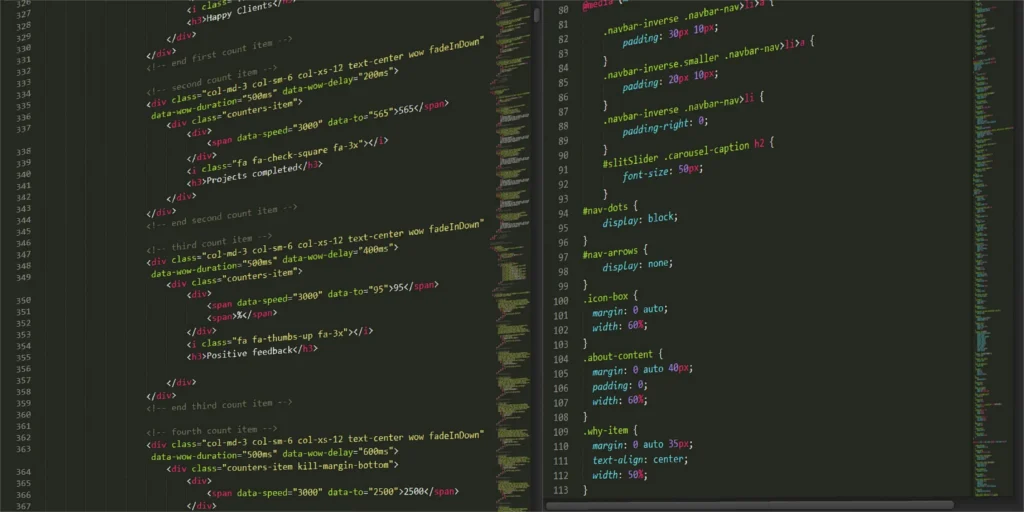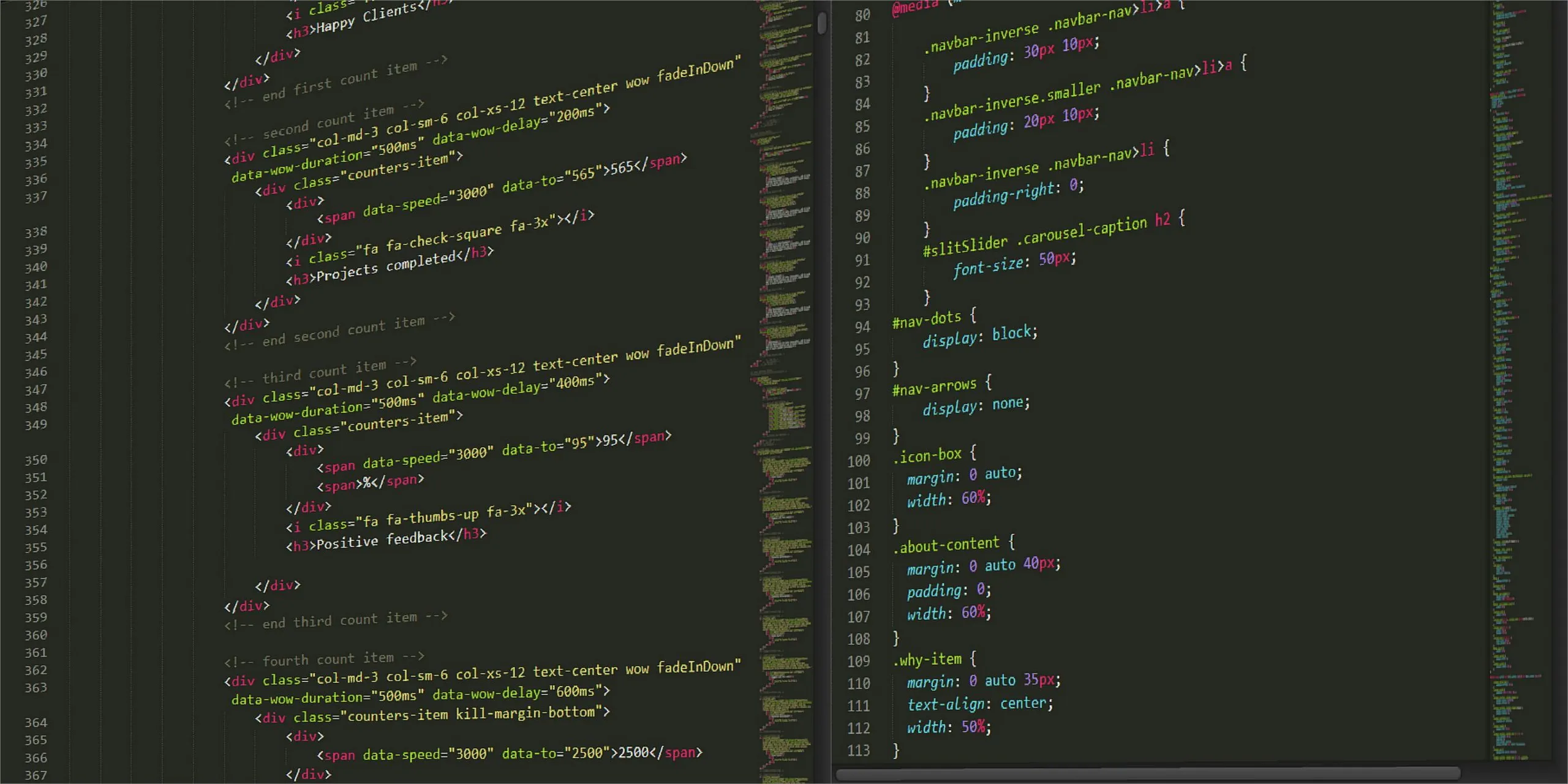The Impact of AI on Website Development: Transforming How the Web is Built

The Impact of AI on Website Development: Transforming How the Web is Built
In today’s fast-evolving digital landscape, websites have transcended their original purpose as static brochures. They have become dynamic, personalized, and intelligent platforms designed to captivate users, drive meaningful engagement, and adapt in real-time. Central to this remarkable transformation is artificial intelligence (AI)—quietly revolutionizing how websites are planned, designed, built, tested, and optimized.
From intelligent code generation tools to real-time content personalization engines, AI is disrupting traditional web development workflows—saving precious time, enhancing performance, and delivering smarter, more relevant user experiences. This blog post dives deep into the profound and ongoing impact of AI on website development, illuminated by real-world use cases, cutting-edge tools, and compelling industry data.
Table of Contents
- Introduction: Why Website Development Is Changing
- AI in the Web Development Lifecycle
- Intelligent Design and Prototyping
- Code Generation and Development Acceleration
- AI-Driven Testing and Quality Assurance
- Content Personalization and User Experience
- Chatbots and Conversational Interfaces
- SEO and Analytics Optimization
- Cybersecurity Enhancements
- The Future of Web Development with AI
- Final Thoughts and Key Takeaways
1. Introduction: Why Website Development Is Changing
The website is the frontline of every brand’s digital presence. Yet, despite its importance, traditional website development remains a painstakingly manual process. Designers juggle wireframes and mockups; developers painstakingly write and debug lines of code; marketers experiment endlessly with A/B testing. This process often delays launches and stifles innovation.
Enter AI, the game-changing catalyst fueling agility, scalability, and intelligence in web projects. Forward-thinking companies embracing AI for digital transformation report revenue growth rates two to three times higher than their less tech-savvy peers, according to Deloitte. For web development teams, this means smarter tools, accelerated workflows, and websites that don’t just sit there—but actively learn, adapt, and grow.
2. AI in the Web Development Lifecycle
AI is no longer a bolt-on afterthought; it’s now embedded across every phase of the web development lifecycle:
| Phase | AI Impact |
|---|---|
| Planning | Automated user research, SEO forecasting |
| Design | Generative UI/UX, A/B outcome prediction |
| Development | Code assistants, bug detection |
| Testing | Automated QA, performance optimization |
| Content | Smart writing assistants, tone adjustment |
| Marketing | Predictive personalization, audience segmentation |
This holistic integration allows teams to work smarter—not harder—while delivering superior websites faster than ever before.
3. Intelligent Design and Prototyping
The creative process of design is one of the earliest beneficiaries of AI innovation.
AI Design Tools Revolutionize Prototyping
Platforms such as Uizard, Figma with AI plugins, and Framer enable designers to generate fully responsive prototypes directly from sketches or even voice commands. This automates routine tasks and injects data-driven insights into the design process.
Key Capabilities:
- Auto-generate responsive layouts suited for multiple devices
- Predict potential usability issues before user testing
- Suggest design improvements grounded in industry best practices
Real-World Example:
Uizard’s AI can convert a simple hand-drawn wireframe into a clickable digital prototype in seconds—slashing hours off front-end design cycles.
Stat:
Companies adopting AI-enhanced design tools experience 30-50% faster prototyping cycles (McKinsey).
4. Code Generation and Development Acceleration
Developers are leveraging AI-powered assistants to streamline coding, debug faster, and even write functional snippets from natural language descriptions.
Leading AI Development Tools:
- GitHub Copilot
- Replit Ghostwriter
- Amazon CodeWhisperer
What These Tools Do:
- Autocomplete code in real-time, reducing repetitive typing
- Suggest fixes and performance optimizations on the fly
- Translate plain English into functioning code blocks
This AI assistance is not about replacing developers—it’s about empowering them to focus on high-value innovation, while automating mundane tasks.
Impact:
Developers using GitHub Copilot report completing coding tasks 55% faster compared to those coding unaided (GitHub Research).
5. AI-Driven Testing and Quality Assurance
Testing traditionally consumes a significant chunk of development time. AI is transforming this bottleneck by automating complex QA workflows.
AI-Powered Testing Benefits:
- Auto-generate diverse test cases covering edge scenarios
- Predict high-risk areas prone to bugs or failures
- Simulate real user behavior for more accurate feedback
Top AI Testing Platforms:
- Testim
- Applitools
- Mabl
These platforms use machine learning to quickly detect defects, adapt tests as code evolves, and flag performance issues—helping teams ship more reliable websites faster.
Stat:
Businesses using AI-powered QA report up to 70% reduction in defect rates (Capgemini).
6. Content Personalization and User Experience
AI is reshaping how websites present content—tailoring every visitor’s experience in real time to boost engagement and conversions.
Dynamic Personalization Includes:
- Displaying customized homepage layouts based on visitor profiles
- Adjusting content by device type, browsing behavior, or preferences
- Auto-generating personalized product recommendations
Leading Platforms:
- Dynamic Yield
- Adobe Target
- Optimizely
Fact:
Personalized websites can drive conversion rates up by as much as 202% (HubSpot).
This level of customization, once impossible to scale, is now a reality thanks to AI.
7. Chatbots and Conversational Interfaces
Chatbots have evolved far beyond scripted Q&A tools into intelligent, human-like conversational partners.
What AI Chatbots Provide:
- Instant responses to frequently asked questions
- Lead qualification and scheduling demos
- Personalized product or content recommendations
Popular Platforms:
- Tidio
- Drift
- ManyChat
Insight:
69% of consumers prefer interacting with chatbots for quick brand communication (Salesforce). Especially in e-commerce, chatbots help reduce cart abandonment and increase user satisfaction.
8. SEO and Analytics Optimization
AI-driven tools are empowering marketers and developers with deeper insights and actionable strategies to boost organic traffic.
SEO Enhancements:
- Suggest keywords aligned with true search intent
- Auto-generate meta tags, descriptions, and alt text
- Forecast content ranking potential and competitor analysis
Analytics Platforms:
- SurferSEO
- Clearscope
- MarketMuse
These platforms not only analyze historical data but also predict future trends, helping brands stay ahead of the curve.
Stat:
AI-optimized websites have seen traffic growth of 30-70% within six months (Neil Patel Digital).
9. Cybersecurity Enhancements
As websites face growing cyber threats, AI strengthens defenses by detecting and neutralizing attacks in real time.
AI Security Advantages:
- Continuous traffic monitoring and anomaly detection
- Automated identification and blocking of suspicious activities
- Faster incident response times
Leading AI Security Tools:
- Cloudflare
- Darktrace
- Reblaze
Fact:
AI-driven security systems reduce incident response times by up to 95% (IBM Security).
For industries like fintech, healthcare, and e-commerce, these protections are vital to safeguard sensitive data and maintain trust.
10. The Future of Web Development with AI
Key Trends to Watch
- No-Code AI Builders
Platforms such as Durable, Zyro, and Bookmark already let users build entire websites from just a few inputs. These tools will become smarter, enabling entrepreneurs and micro-businesses to launch fully functional sites in minutes. - Real-Time UX Adaptation
Future websites will dynamically adjust structure and content based on individual user behavior, optimizing conversions on the fly. - Natural Language Interfaces
Imagine building or updating your website just by telling it what you want. Commands like “Make this button red” or “Add a contact form here” will become standard, redefining accessibility and speed. - Self-Healing Websites
AI will detect broken links, outdated content, or slow-loading pages and fix them automatically—ensuring websites maintain peak performance without manual intervention.
11. Final Thoughts and Key Takeaways
The impact of AI on website development is no longer a distant promise—it’s an active, transformative force reshaping every step of the process. Whether you’re a solo developer, a design agency, or a large enterprise, AI-powered tools are already here to help you build smarter, faster, and more adaptive digital experiences.
By embracing AI, businesses can create not just better websites but evolving digital ecosystems that learn, grow, and deliver exceptional value to users around the clock.
✅ Key Takeaways
- AI is revolutionizing design, coding, testing, content, SEO, and security in web development.
- Companies leveraging AI enjoy faster time to market, improved quality, and higher ROI.
- The future points to conversational, self-optimizing, and no-code website solutions.
- Early adoption of AI tools ensures your brand stays competitive in an increasingly tech-driven market.


